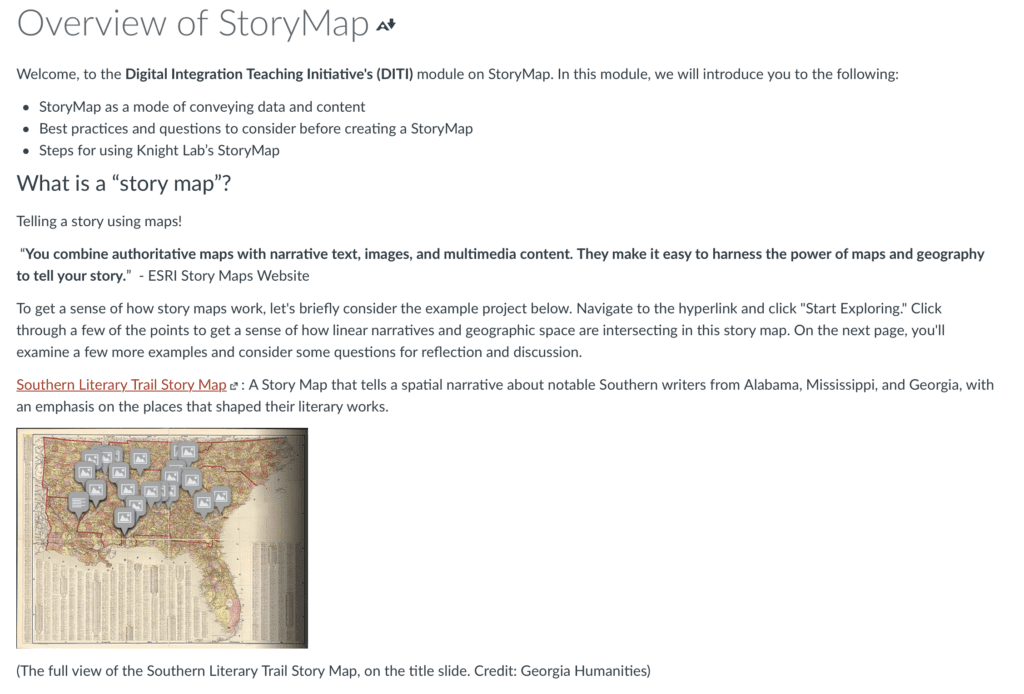The NULab is excited to launch its Digital Integration Teaching Initiative (DITI) Canvas Template Modules: a library of digital proficiency modules for the Northeastern community. The COVID-19 pandemic has caused unprecedented disruptions to our lives, including our teaching and learning systems. It has also provided an opportunity to reimagine pedagogies in higher education and bolster the integration of digital skills in curricula. During the pandemic, the DITI pivoted to conducting virtual workshops and class visits. The DITI also developed asynchronous modules which faculty can integrate into their courses. These modules contain content equivalent to a workshop for a digital skill. Each module is a template that introduces the digital proficiency and provides step-by-step instructions with screenshots, videos, suggested discussion board topics, and reference materials.
The DITI Canvas module library consists of six template modules, and it will grow over time as modules on more digital skills are added. The library presently contains two modules on website building: Wix and WordPress, a digital proficiency every undergraduate and graduate student can use to create a professional portfolio. Both modules introduce the core functionalities of these tools, teaching learners how to plan a website, and how to build new professional websites of their own or contribute content to collaborative class websites. These modules contain demonstration videos, screencasts, and screenshots to support the learning. Podcasts and TEDtalks are two other popular mediums of information delivery. The DITI’s module on Analyzing Podcasts/TEDtalks teaches students the structures, rhetorics, and strategies commonly used in podcasts and TEDTalks. It uses case studies and asks critical questions to analyze these modes of information delivery.
The DITI module on StoryMap is one of the more popular resources, which introduces students to web-based KnightLab’s StoryMap tool for combining maps with narrative text, images, and multimedia content. The module includes very informative examples along with the best practices for organizing data and creating visual narratives. Another popular module is Computational Text Analysis. This module introduces important vocabulary terms and definitions in computational text analysis, showcases the best practices for building a corpus and preparing texts for analysis, and provides a step-by-step guide to user-friendly web-based text analysis tools. This module demonstrates four web-based tools: WordCounter, WordTree, Lexos, and Voyant.

The DITI template module on Data Ethics is the most comprehensive module by far and encourages faculty to tailor and adapt the material according to their classroom needs. This module covers many important concepts related to data ethics, including what big data is and how it works, algorithmic bias, and questions and guidelines for ethical research. It uses prominent issues and recent articles to help students understand the ways in which technology reflects cultural, social, and political biases. The module encourages students to understand the ways data is being used in society as well as how algorithms impact our daily lives. This module also explores the ways in which privacy and security are being redefined through the use of big data, algorithms, and policy. The data ethics module contains multiple discussion forums and exercises for faculty to choose from.
For more on these modules, please see the DITI site. All template modules are freely available in Canvas Commons. Please credit the DITI when using the modules. The DITI also develops customized Canvas modules for faculty partners. Please contact us or apply during the Call for Partnerships for partnering with the DITI.



